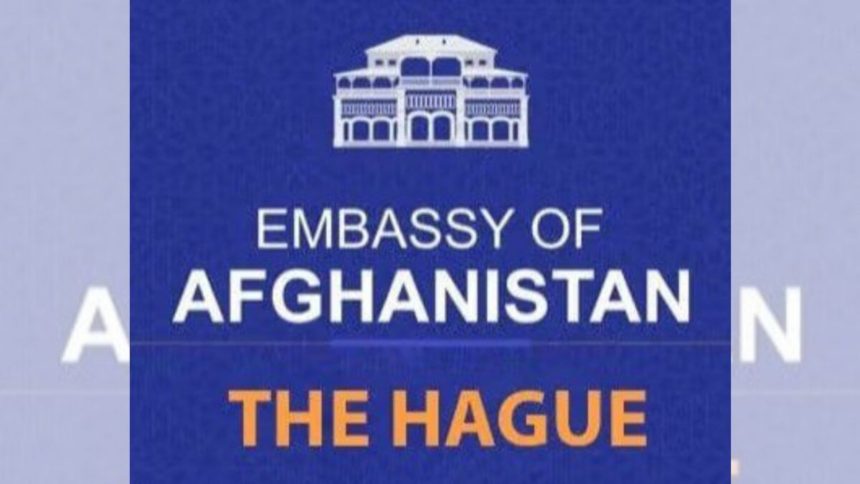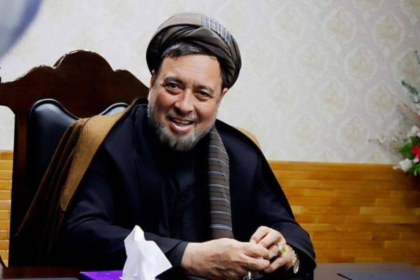RASC News Agency: In a provocative and deeply contentious move, the Embassy of Afghanistan in the Netherlands has excised the emblem of the Islamic Republic of Afghanistan, along with the historic tricolor national flag, from its official website and social media platforms. According to well-informed sources, this unilateral decision was executed under the direct authority of Asif Rahimi, Afghanistan’s ambassador to the Netherlands widely known as one of the earliest diplomats to engage and collaborate with the Taliban regime. Reports emerging on Tuesday reveal that this action took place without prior consultation or approval from the Dutch government. The Netherlands has yet to formally articulate an official stance on the recognition or rejection of the Islamic Republic’s legitimacy. Consequently, the removal of Afghanistan’s national symbols appears to be a self-initiated act by Ambassador Rahimi, underscoring a troubling erosion of diplomatic norms and respect for sovereign identity.
Rahimi’s tenure has been fraught with controversy, primarily due to his overt and continuous liaison with the Taliban’s Ministry of Foreign Affairs. When confronted with criticism, Rahimi defended his actions as routine diplomatic engagement, claiming that communication with the Taliban’s foreign ministry represents a continuation of historical channels and is thus not exceptional. However, this justification glosses over the profound implications of legitimizing a regime internationally condemned for its repression, human rights violations, and harboring of extremist elements. Since the Taliban’s brutal takeover of Afghanistan, the group has systematically discarded the national tricolor flag an enduring symbol of the country’s sovereignty and pluralistic heritage and replaced it with a stark white banner emblazoned with Islamist slogans. Despite this, no state has officially recognized the Taliban as the legitimate government of Afghanistan. Even countries maintaining limited diplomatic contacts with the Taliban have refrained from displaying their flag or symbols within official settings, highlighting the regime’s pariah status.
The Islamic Republic’s emblem, steeped in historical significance, embodies the nation’s identity and unity. It depicts a mosque flanked by two minarets, enveloped by stalks of wheat, the national tricolor, and the declaration “There is no god but Allah; Muhammad is the messenger of Allah,” alongside inscriptions denoting Afghanistan’s name and its independence date. This emblem remains a powerful testament to Afghanistan’s struggle for sovereignty, diversity, and modern statehood. While the Taliban persist in efforts to erase all traces of the Islamic Republic’s legacyvincluding its national symbols some official documents, such as passports, continue to bear the emblem, revealing a dissonance and unresolved institutional ambiguity within Afghanistan’s governance.
Asif Rahimi’s political evolution from his prior roles as Minister of Agriculture and Governor of Herat under the Islamic Republic to his current alignment with Taliban interests has incited widespread unease and criticism across Afghanistani civil society and the international community. His facilitation of Taliban influence within diplomatic missions abroad signals a quiet capitulation to the regime’s coercive expansion, undermining the remnants of Afghanistan’s previous constitutional order. This symbolic erasure and diplomatic capitulation underscore the Taliban’s growing shadow over Afghanistan’s international representation, signaling not only the systematic dismantling of the Islamic Republic’s identity but also a disturbing normalization of a regime responsible for profound human suffering and regional destabilization.
The global community now confronts urgent questions about the consequences of tacit acceptance of Taliban dominance questions that strike at the heart of international law, human rights, and the future trajectory of Afghanistan’s national sovereignty.






